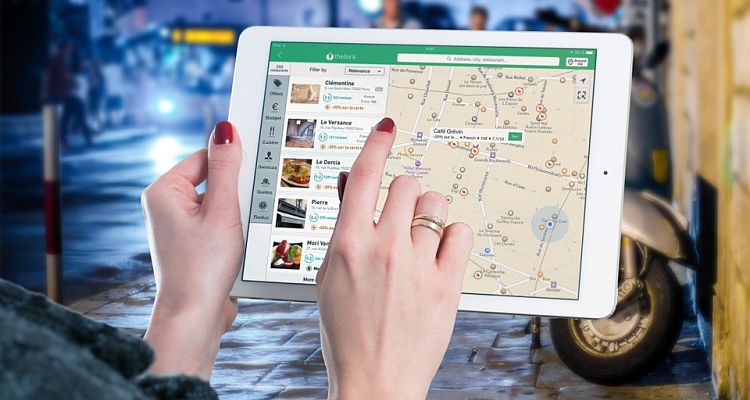
Is your upcoming move stressing you out? Organizing, packing and keeping up with daily life can make you feel a bit crazy and a little tempted to pile everything onto the top of your car, tie it down, and hope for the best. I’m here to help. As an experienced mover, I’ve learned a few tips that make your move simpler. Take a few minutes now to learn how your next move can be a less stressful experience.
Set a Budget
Moving expenses have a habit of skyrocketing without our knowledge. Now is the ideal time to make a unique moving budget in order to lessen the possibility of any stressful or financially draining shocks. Include an estimate of the move’s expenses, such as those for packing supplies, transportation, and unpacking.
Create a Master List
Work, soccer practice, making dinner and a million other activities happen every day. How will you find time to move, too? You schedule and organize it. On a spreadsheet on your phone or in a three-ring binder, make a moving checklist, record the moving company’s phone number, and set reminders to turn off the utilities. Located in one convenient spot, the master folder and its contents help you stay sane and accomplish everything on your moving to-do list.
Sort One Room at a Time
Packing and moving anything you don’t love, use, or want doesn’t make much sense. Start sorting through all your stuff as soon as possible to reduce your inventory and clutter. To make the process easier, schedule a room a week or a floor per weekend. Let your kids partner up to sort their bedrooms and the playroom, and ask your best friends to tackle the basement, living room, and garage. Be sure to place garbage cans in each room so that everyone can toss broken items. Separately marked boxes hold unwanted, gently used items for charity.
Notify Friends and Family
Make a list of the people you need to notify. Before you relocate to a new location, there are many loose ends to tie up. In your moving checklist, you should specify when and how you’ll complete these duties. When the time comes, be prepared to call certain people or stop by local offices. You’re less likely to forget someone if you make this list in advance and schedule the chore for yourself on your calendar.
Gather Free Boxes
Find free boxes in the sizes you’ll need to start saving money right away. Visit your neighborhood grocery store, recycling facility, or wine and beer store. Even huge merchants and grocery stores frequently receive deliveries every week, and they are typically eager to share their boxes with others.
Start Packing As Early as Possible
Ideally, you will be aware of a move weeks or even months in advance (even if you are unsure of the final destination). Pack the goods you won’t miss and off-season clothing first. Winter jackets can be packed in advance if you’re relocating in the summer, as may probably books and other sporadic goods. Many objects will already be prepared to move when the time comes, reducing your worry.
Color Code Boxes
Invest in a sheet of colorful stickers and give each hue a room to save time when naming your boxes. You won’t have to look for the marker every time you seal a box, and you’ll be able to immediately distinguish what belongs where.
Kitchen Requires Special Attention
There are many various kinds of items that go into packing the kitchen. Find out how to pack dishes before moving: Wrap each dish in packing paper before grouping five or six dishes together. Never pack dishes flat; always on their sides. Additionally, put a lot of paper that has been crumpled up below and above. Paper can be used as a divider between cups and bowls when bundling three or four of them together. Place everything within dish barrel boxes.
Use a box with cardboard dividers to assist preserve the glasses while packing them for a move, and wrap them in numerous layers of paper to further protect them.
Organize the Packing Process
If you hire a moving company to do the packing for you, then sit back and relax. If you prefer to oversee this task, implement an efficient and color-coded packing process that goes room by room. Organizing the packing process takes a bit of effort, but it saves time and reduces stress in the long run.
1. Start by placing packing supplies like boxes, newspaper, tape, and a colored marker in each room. When you’re ready to pack that room, all your supplies are waiting for you.
2. Pack similar items together, that way you’re not unpacking a box with items that belong in the living room, bathroom, and attic and instead are unpacking items that belong only in the room you are currently setting up.
3. Color code and label each box. As an example, the boxes from the dining room could be labeled DR1, DR2, et cetera with a blue marker, blue colored duct tape or blue colored dot stickers, while bathroom boxes could be labeled BATH1, BATH2, and so on in red.
4. Track the boxes on a master list. When you record that box DR1 holds fine china and DR2 holds silverware, you know exactly where to find anything you need with a single glance.
Get Moving Quotes
Get at least two or three different quotes from moving companies so that you can compare them. You’ll be shocked by the significant price variations amongst moving services. If this is your first move with the company, some of them will provide you with incentives, while others will add extra guarantees for the shipment of your priceless or fragile belongings.
Pack a Travel Kit for Family Members
Identification, cash, prescription medications, a cellphone and charger, a water bottle and snacks, an extra set of clothes, and toys help your family members stay sane and healthy on a moving day. Pack those bags as soon as possible, and store them somewhere away from the main pile of boxes so that they don’t get placed on the truck accidentally.
In addition to individual travel bags, prepare a box with supplies for the first days in your new home. Stock it with paper plates and silverware, the coffee maker and coffee, toiletries, bedding, cleaning supplies and medicine. This way, you won’t have to dig frantically through packed boxes looking for essential supplies like toilet paper or toothpaste.
The Big Day
To keep everyone’s energy levels high, pack a cooler full of portable things like water bottles and tiny snacks. Take into account the loading sequence for the moving truck. Prepare the items you won’t need right away to load first. Pack your beds last so that they will be the first things to come off the truck if you intend to move into your new home right away.
Create a strategy for your kids or animals. It will be less stressful if you can make plans for your children or pets to stay with a relative or close friend on the day of the transfer. The day before you move, make sure you have everything packed.
Trust me, I understand the stress, chaos, and busyness associated with moving. Follow these simplified moving tips, however, and you’ll be ready to transition easily and in an organized manner to your new home.




Leave a Comment